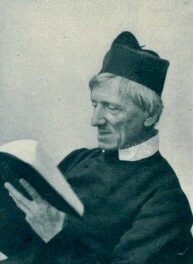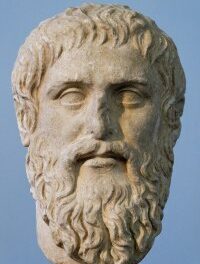We support our Publishers and Content Creators. You can view this story on their website by CLICKING HERE.
If our hearts were truly not in this world but in heaven, all the torments that the world could devise would give us no pain. Let us therefore send our hearts to heaven by sending our wealth there.
XIII. Concerning the wise way to secure riches
 ANTHONY: I think, cousin, that when this persecution comes it will not only test men’s hearts and allow them to see whether they are corrupt and greedy or possessed of a pure heart, but the very fear of persecution may teach them the same lesson ahead of time. This will be a great benefit to them if they have the intelligence to profit from it, for they can then find a secure hiding place for their treasure that the Turk’s army will never find.
ANTHONY: I think, cousin, that when this persecution comes it will not only test men’s hearts and allow them to see whether they are corrupt and greedy or possessed of a pure heart, but the very fear of persecution may teach them the same lesson ahead of time. This will be a great benefit to them if they have the intelligence to profit from it, for they can then find a secure hiding place for their treasure that the Turk’s army will never find.
VINCENT: I can assure you uncle, that many people will eagerly try to find such secure places to hide their wealth. I have known some who thought they had hidden their money safely, digging deeply into the ground and burying it there, who came back later and found that someone had dug it up and carried it away.
ANTHONY: I have known some like that too. But what happened to them is no surprise; they should have known better. After all, they were warned ahead of time not to hide their money in such places by someone who knew well what would become of it.
VINCENT: That was very foolish of them! Did this same person tell them where they should hide it instead, in a place where it could not be found?
ANTHONY: Indeed he did! Otherwise he would have given them only half a piece of advice. He laid the whole thing out for them. He made clear that burying treasure in the ground was no way to safeguard it, since it would be dug up by thieves and hauled away.
VINCENT: But where did he say they should hide it? After all, thieves can find money in lots of places.
ANTHONY: He advised them to lay up treasures for themselves in heaven, since no thieves can arrive there unless they put aside their thieving and become true men. And he knew what he was talking about, for it was our Savior himself. You remember his words: “Do not lay up for yourselves treasures on earth, where moth and rust consume and where thieves break in and steal, but lay up for yourselves treasures in heaven, where neither moth nor rust consumes and where thieves do not break in and steal. For where your treasure is, there will your heart be also” (Matt. 6:19–21). After hearing these words, I hardly think we need any more advice, or any further consolation for the loss of our goods to the persecuting Turk. Our Lord tells us where our treasure will be secure: in the hands of the poor. If we give our money away to those in need, it will lie safe there, for who goes searching a poor man’s wallet for money? When we give to the poor, we give to Christ himself. And where is the persecutor who is strong enough to take that wealth out of his hands?
VINCENT: As true as this is, uncle, it is still so hard for men to give up their goods in this way.
ANTHONY: Yes, and especially hard for those who never hear any good advice about their wealth, or who hear it, but listen to it as if it were an idle tale. Yet if we take these words of Christ not only into our ears but also into our hearts, and consider that this is not some poet’s fable but the very word of God, we would be ashamed to find our hearts and minds as dull and weak as before. This sad state of ours, that the seed of God’s word has so little root in us, shows us that the thorns, brambles, and briers of our worldly riches have grown up so thick and high in the soil of our hearts that they are strangling God’s word. God is therefore being gracious to us when, like a good farmer, he brings his people into the field—for our persecutors are his people—to grub up with their hoes and their pitchforks all the wicked weeds and brambles of our earthly wealth and carry them far away from us, in order to allow the word of God to have room in our hearts and to open a glade where the warm sun of God’s grace can shine in and make the seed grow. If we put our treasure in the earth of this world, our hearts will become like our treasure, made out of mud. But if we send our treasure to heaven, our hearts will be found there. And the greatest comfort anyone can have in the midst of suffering is to have his heart in heaven.
If our hearts were truly not in this world but in heaven, all the torments that the world could devise would give us no pain. Let us therefore send our hearts to heaven by sending our wealth there. We shall then find that the consolation of the Holy Spirit within us will mitigate, diminish, assuage, and quench the furious fervor of the tribulation God is allowing us to suffer for the gaining of merit.
Consider: What if someone knew that in a short time he would be driven out of his land and would be forced to flee to another place? Wouldn’t we think such a person very foolish if he refused to part with his goods and send them ahead of him to the place where he knew he would be spending the rest of his life? It is even more foolish if we, not knowing how long we will even be in this world, refuse to part from our goods for a short time because we fear a little loss. We know that we will soon have to leave them behind anyway; and in the process we would be putting our eternal happiness in jeopardy.
VINCENT: It does seem to me, uncle, that these considerations of yours are a great consolation for the loss of worldly wealth, and I only hope for the grace to remember them.
This essay is an excerpt from Dialogue of Comfort Against Tribulation.
Republished with gracious permission from Cluny Media.
Imaginative Conservative readers may use the code IMCON15 to receive 15% off any order of not-already discounted books from Cluny Media.
The Imaginative Conservative applies the principle of appreciation to the discussion of culture and politics—we approach dialogue with magnanimity rather than with mere civility. Will you help us remain a refreshing oasis in the increasingly contentious arena of modern discourse? Please consider donating now.
Share This Story, Choose Your Platform!
Go to Top

 Conservative
Conservative  Search
Search Trending
Trending Current News
Current News 





